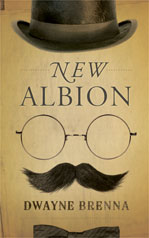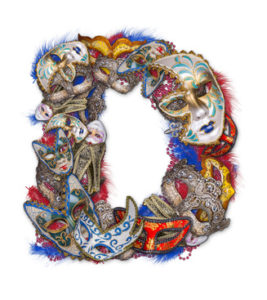Usually when I feature a novel by someone named Brenna, it is by one of my favorite writers (and my cousin), Beverley Brenna. Today, I’m delighted to introduce you to Bev’s husband, Dwayne, whose first novel is hot off the press.
This isn’t Dwayne’s first foray into authorship, however. He has written nonfiction, delving into theatre history; he is a humorist, having published collections of short stories in the persona of his much-loved CBC radio character of years gone by, Eddie Gustafson; he is a playwright; and he also has two volumes of poetry.
As an actor, director, and drama professor, he knows the world of theatre intimately, and that deep knowledge is evident in his first novel.
Author: Dwayne Brenna
Publisher: Regina, SK: Coteau Books, 2016.
Genre: Adult fiction
Themes/topics: Theatre, change, aging, coping with whatever life throws your way
Opening Sentences: Ned Farquhar Pratt has steadfastly refused to learn the dialogue in his own play Jack Larceny the Pickpocket, and he will not hear of anyone but himself playing the role of Old Sewell.
Synopsis: That beginning indicates the sort of difficulties the stage manager of the New Albion, Emlyn Phillips, has to deal with on a daily basis.
The book is set in London, England, in the 1850s and evokes the Dickensian era well, in setting, characters and language usage.
The New Albion theatre, despite the word “New” in its name, is becoming quite run down, and there are run-ins with the police, a less than uppercrust audience (to put it mildly), an acting company filled with all-too-fallible people with more than the usual assortment of foibles, addictions, and personal problems.
Emlyn, the main character, must somehow deal with all this and ensure that a play is produced in the way it is supposed to be, every evening. As the company and the theatre itself lurches from calamity to calamity, Emlyn has to decide if he is willing to continue with his life’s passion of theatre.
This is a vivid portrayal of theatre life, both backstage and from the perspective of the front of the house. It is obvious that Dwayne both loves theatre deeply and knows its history well.
He evokes the atmosphere of the 1850s well, and his language choice is an accurate reflection of the era (to the extent that there are a couple of words that are frowned on in our own era, quite rightly, but in the context of the book, show us how people of that time thought and acted in their daily lives.) Keep in mind that this is a book for grown-ups, not for kids.
I highly recommend it – but with a heads-up for all my American readers: so far it’s only available in ebook format in the U.S., but can be ordered as a hard copy through amazon.ca (rather than .com), chapters.indigo.ca, or mcnallyrobinson.com. You might suggest it for your local library.
For Further Enrichment: Dwayne has a website that features all his books as well as his bio, his directing resumé, and more.
There’s good information about theatre in the Victorian era at the website of the Victoria and Albert Museum.
The publisher, Coteau Books, has a New Albion Pinterest board.
Yes, D is for Dwayne in my ongoing alphabet of blog posts. (I thought I’d choose a dramatic D for this post. Fotolia is a great source, and it was hard to decide on just one.)


